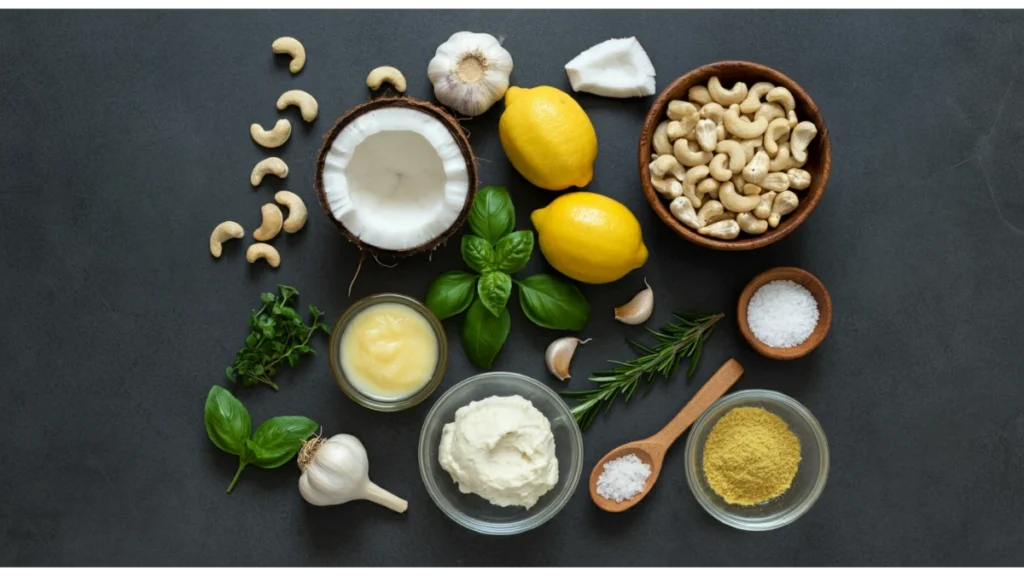Unleash the Flavor: The Best Vegetarian Cheese Recipes You Need to Try!
Welcome to the ultimate guide on vegetarian cheese! Whether you’re a lifelong vegetarian, a curious omnivore, or someone simply exploring plant-based options, understanding vegetarian cheese can enhance your culinary adventures. In this comprehensive article, we will delve into what vegetarian cheese is, how it differs from traditional cheese, and explore a variety of delicious recipes, tips for incorporating it into your diet, and much more.
Vegetarian cheese is not just a substitute; it’s an opportunity to explore new flavors and textures while enjoying the benefits of a plant-based diet. As the demand for vegetarian options continues to rise, so does the variety of cheeses available. From creamy spreads to hard cheeses that grate beautifully, vegetarian cheese can appeal to every taste.
What is Vegetarian Cheese?

Vegetarian cheese is primarily distinguished by the absence of animal rennet, which is often used in traditional cheese-making processes. Instead of rennet, vegetarian cheeses may use plant-based coagulants, such as lemon juice, vinegar, or microbial enzymes. Understanding the ingredients and types of vegetarian cheese is essential for making informed choices.
The Basics of Cheese-Making
To appreciate vegetarian cheese fully, it’s helpful to understand the basics of cheese-making. Traditional cheese is made by curdling milk, typically from cows, goats, or sheep. This process involves the addition of rennet, an enzyme that helps separate the curds (solid) from the whey (liquid). The curds are then pressed, aged, and processed into various cheese types.
In contrast, vegetarian cheese substitutes animal rennet with plant-based alternatives, allowing for a similar curdling process without animal products. This opens the door for a wide range of ingredients, including nuts, seeds, soy, and even vegetables, to be used as bases for cheese.
Key Types of Vegetarian Cheese
Vegetarian cheese comes in various forms, each offering unique flavors and textures. Let’s explore some of the most common types:
- Nut-Based Cheeses: Nut-based cheeses are made primarily from soaked nuts, typically cashews or almonds. They are blended with nutritional yeast, herbs, and spices to create a creamy texture and rich flavor. These cheeses can be spreadable or firm, depending on the recipe.
- Soy-Based Cheeses: Soy cheese is made from soy milk or tofu and often includes flavorings and thickeners. It can be a great alternative for those who are allergic to nuts. Soy cheese is available in various forms, including slices, shreds, and blocks.
- Coconut-Based Cheeses: Coconut cheese is made from coconut cream or oil, often combined with starches to achieve a meltable texture. This type of cheese can have a slightly sweet flavor, making it a unique addition to dishes.
- Vegetable-Based Cheeses: Some vegetarian cheeses utilize vegetables as their primary ingredient. For example, cashew cheese can be blended with roasted red peppers or spinach to create flavorful spreads.
- Store-Bought Vegetarian Cheeses: Many brands offer pre-packaged vegetarian cheeses, which can include a mix of the above ingredients. These cheeses are often fortified with additional nutrients and can be found in various flavors and styles.
Ingredients You’ll Need for Vegetarian Cheese

Creating your own vegetarian cheese at home can be a rewarding experience. Here are some common ingredients you’ll need:
- Cashews: A popular base for creamy vegan cheeses. When soaked and blended, cashews create a smooth texture that mimics traditional cheese.
- Nutritional Yeast: This deactivated yeast adds a cheesy flavor without dairy. It’s packed with B vitamins and has a nutty, savory taste.
- Coconut Oil: Provides a rich texture and helps solidify cheese when refrigerated. It adds a hint of sweetness that complements many flavors.
- Lemon Juice: Adds acidity and brightness to the cheese, balancing flavors and enhancing the overall taste profile.
- Herbs and Spices: Customize flavors with garlic powder, smoked paprika, fresh herbs like basil or rosemary, and even chili flakes for a kick.
Step-by-Step Instructions to Make Your Own Vegetarian Cheese
Making vegetarian cheese at home is easier than you might think! Here’s a simple recipe to get you started:
Creamy Cashew Cheese Recipe
Ingredients:
- 1 cup raw cashews, soaked for 4 hours
- 1/4 cup nutritional yeast
- 2 tablespoons coconut oil, melted
- Juice of 1 lemon
- 1 garlic clove (optional)
- Salt to taste
- Fresh herbs (optional)
Instructions:
- Soak the Cashews: Begin by soaking the cashews in water for at least 4 hours or overnight. This softens them and makes blending easier.
- Drain and Rinse: After soaking, drain the cashews and rinse them under cold water.
- Blend the Ingredients: In a high-speed blender, combine the soaked cashews, nutritional yeast, melted coconut oil, lemon juice, garlic (if using), and a pinch of salt.
- Blend Until Smooth: Process the mixture on high until it becomes creamy and smooth. You may need to stop and scrape down the sides to ensure everything is well blended.
- Taste and Adjust: Taste the mixture and adjust the seasoning as necessary. If you want a stronger flavor, consider adding more nutritional yeast or herbs.
- Chill and Serve: Transfer the cheese to a container and refrigerate for at least 2 hours before serving. This allows the flavors to meld and the cheese to firm up.
Variations of Cashew Cheese
- Herbed Cashew Cheese: Add fresh herbs like basil or dill for a fresh twist.
- Spicy Cashew Cheese: Mix in jalapeños or red pepper flakes for an extra kick.
- Smoked Cashew Cheese: Incorporate smoked paprika for a smoky flavor profile.
Nutritional Value
Understanding the nutritional value of vegetarian cheese can help you make healthier choices. Here’s a breakdown of the benefits of the key ingredients:
| Ingredient | Benefits |
|---|---|
| Cashews | High in healthy fats, protein, and minerals like magnesium and zinc. They are also a good source of antioxidants. |
| Nutritional Yeast | Rich in B vitamins, particularly B12, which is essential for vegans and vegetarians. It also contains protein and fiber. |
| Coconut Oil | Contains medium-chain triglycerides (MCTs) that can provide quick energy. It also has antimicrobial properties. |
| Lemon Juice | High in vitamin C, which supports the immune system and enhances iron absorption. |
| Herbs and Spices | Provide additional antioxidants and can enhance the flavor without adding calories. |
Benefits of Vegetarian Cheese

Vegetarian cheese offers numerous health benefits, including lower cholesterol levels and increased nutrient intake from plant-based ingredients. Here are some of the key benefits:
- Heart Health: Vegetarian cheeses are often lower in saturated fat compared to traditional cheeses, which can contribute to better heart health.
- Digestive Health: Many vegetarian cheeses are made from nuts and seeds, which are rich in fiber and can aid digestion.
- Weight Management: Plant-based cheeses can be lower in calories and fat, making them a great option for those looking to manage their weight.
- Versatility: Vegetarian cheese can be used in a variety of dishes, from pizzas and pastas to salads and sandwiches, allowing for creativity in the kitchen.
- Sustainable Choice: Choosing vegetarian cheese can reduce your carbon footprint, as plant-based foods generally have a lower environmental impact than animal products.
Overcoming Challenges
Making vegetarian cheese can sometimes be tricky. Here are a few common challenges and practical tips to address them:
- Texture Issues: If your cheese is too runny, consider adding more nuts or a thickening agent like agar-agar or tapioca starch to achieve a firmer consistency.
- Flavor Adjustment: Don’t be afraid to experiment with different spices and herbs to find your perfect flavor profile. Taste as you go!
- Storage Concerns: Homemade vegetarian cheese is best consumed within a week. Store it in an airtight container in the refrigerator to maintain freshness.
- Ingredient Availability: If you can’t find a specific ingredient, look for alternatives. For example, if cashews are unavailable, almonds or sunflower seeds can also work well.
Future Trends in Vegetarian Cheese
As plant-based diets gain popularity, the market for vegetarian cheese is expanding rapidly. Here are some trends to watch for:
- Innovative Products: Expect to see more innovative products that mimic traditional cheese flavors and textures, such as cheese that melts and stretches.
- Increased Availability: More grocery stores and specialty shops are beginning to carry a wider variety of vegetarian cheeses, making them more accessible to consumers.
- Health-Oriented Options: With a growing focus on health, brands are developing vegetarian cheeses that are fortified with additional nutrients, such as probiotics and vitamins.
- Sustainability Practices: Brands are increasingly adopting sustainable practices in their production processes, appealing to environmentally-conscious consumers.
Tips and Tricks Section
To make the most out of your vegetarian cheese experience, here are some helpful tips:
- Pairing: Vegetarian cheese pairs wonderfully with fruits, nuts, and whole-grain crackers. Experiment with different combinations to find your favorites.
- Cooking: Use vegetarian cheese in cooking just like you would with traditional cheese. It can be melted over dishes, used in salads, or blended into sauces.
- Presentation: When serving vegetarian cheese at gatherings, consider creating a cheese board with a variety of cheeses, fruits, nuts, and breads for an appealing display.
- Storage: Store homemade vegetarian cheese in an airtight container in the refrigerator for up to a week. Consider freezing portions for longer storage.
Variations and Adaptations
Vegetarian cheese can be adapted to fit various dietary needs. Here are some suggestions:
- Gluten-Free: Most vegetarian cheeses are naturally gluten-free, but always check labels when purchasing store-bought options.
- Vegan Options: For a fully vegan version, ensure all ingredients are plant-based. Many recipes can easily be adapted by omitting dairy or using plant-based substitutes.
- Nut-Free Options: If you have a nut allergy, consider making cheese from seeds (like sunflower or pumpkin seeds) or using tofu as a base.
Creative Vegetarian Cheese Recipes
To inspire your culinary journey, here are a few creative vegetarian cheese recipes you can try at home:
1. Vegan Cream Cheese
Ingredients:
- 1 cup raw cashews, soaked
- 1/4 cup coconut cream
- 2 tablespoons lemon juice
- 1 tablespoon apple cider vinegar
- Salt to taste
Instructions:
- Drain and rinse the soaked cashews.
- Blend all ingredients in a food processor until smooth and creamy.
- Adjust seasoning as needed.
- Chill in the refrigerator before serving.
2. Spicy Vegan Cheese Spread
Ingredients:
- 1 cup raw almonds, soaked
- 1/4 cup nutritional yeast
- 1-2 jalapeños, seeds removed
- 2 tablespoons lemon juice
- Salt to taste
Instructions:
- Drain and rinse the soaked almonds.
- Blend all ingredients until smooth.
- Adjust heat by adding more jalapeños if desired.
- Serve with crackers or veggies.
3. Vegan Parmesan Cheese
Ingredients:
- 1 cup raw cashews
- 1/4 cup nutritional yeast
- 1 teaspoon garlic powder
- Salt to taste
Instructions:
- Combine all ingredients in a food processor.
- Pulse until a fine meal forms, being careful not to over-process.
- Store in an airtight container in the refrigerator.
FAQs Section
- Can I substitute regular cheese with vegetarian cheese in recipes?
- Yes, but keep in mind that flavors may differ slightly. It may require some adjustments in seasoning.
- How long does vegetarian cheese last?
- Homemade versions typically last about a week in the fridge. Store-bought varieties may have longer shelf lives, so always check the expiration date.
- Is vegetarian cheese suitable for vegans?
- Not all vegetarian cheeses are vegan, as some may contain dairy. Always check the label to ensure it meets your dietary needs.
- Can I freeze vegetarian cheese?
- Yes, many types of vegetarian cheese can be frozen. However, the texture may change upon thawing, so it’s best used in cooked dishes after freezing.
- Where can I buy vegetarian cheese?
- Vegetarian cheese can be found in most grocery stores, health food stores, and online retailers. Look for brands specifically labeled as vegetarian or vegan.
Conclusion
Vegetarian cheese is a versatile and delicious alternative that can enhance your meals and snacks. Whether you’re making a creamy spread, a flavorful topping, or simply snacking on it, there’s a vegetarian cheese option for every dish. By exploring the world of vegetarian cheese, you can enjoy the rich flavors and textures while adhering to a vegetarian or plant-based diet.
As you embark on your journey with vegetarian cheese, remember to experiment, taste, and have fun in the kitchen. Share your experiences with vegetarian cheese in the comments, and don’t forget to subscribe for more recipes and tips! Embrace the delicious possibilities that vegetarian cheese has to offer, and enjoy the journey of discovering new flavors and culinary creations.

